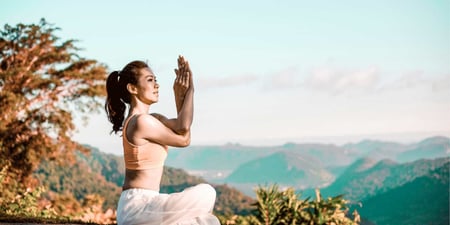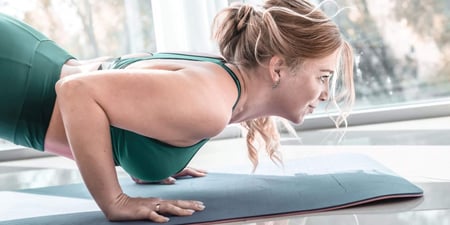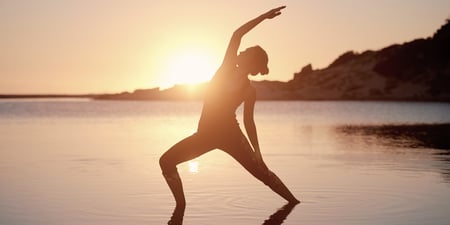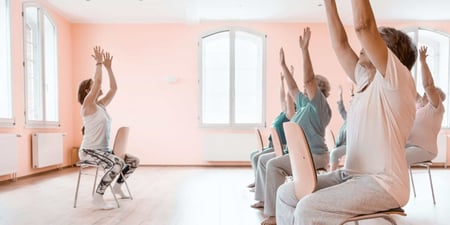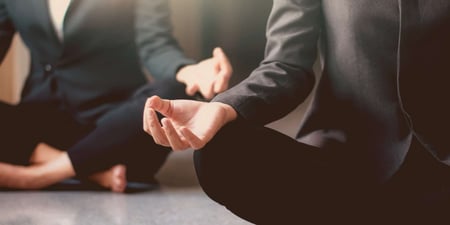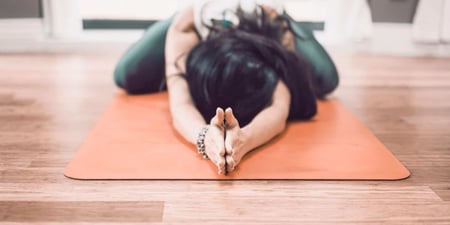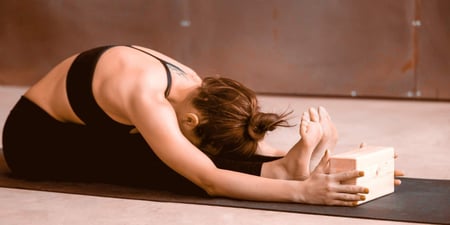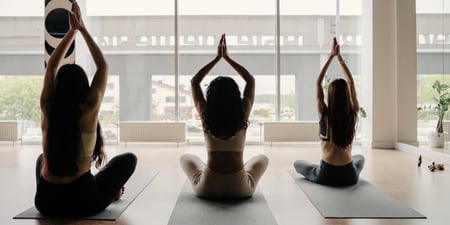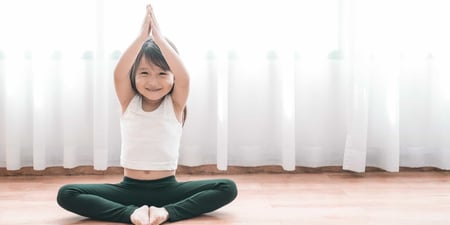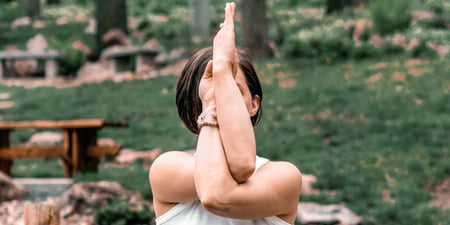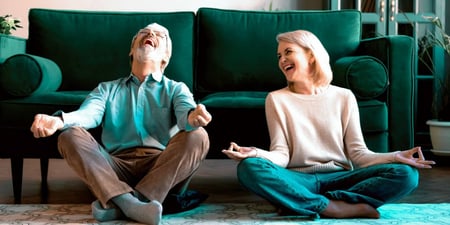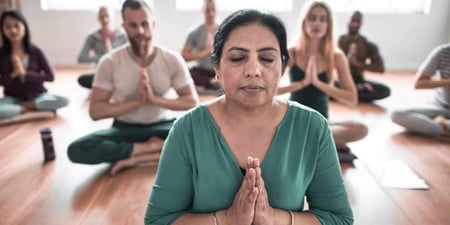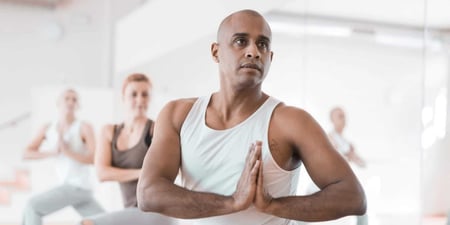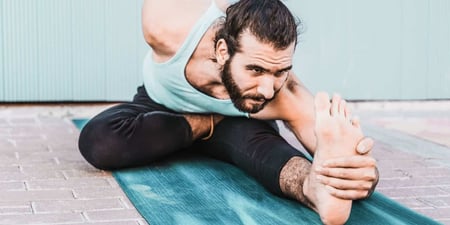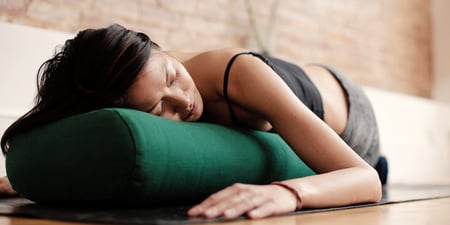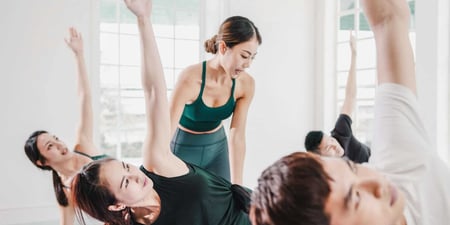Yoga
How can yoga nourish you?
In the Western world, yoga is most popularly known as a type of exercise focusing on postures and relaxation techniques that aid in stress relief and flexibility. However, the physical poses associated with yoga are only one aspect of a greater collection of practices originally developed with the intention of enriching the body, mind and spirit[1].
While the precise origins of yoga are uncertain, the earliest forms are believed to have been developed some 5,000 years ago[2] by the Indus-Sarasvati civilisation from North India. But it wasn’t until the late 19th century that masters of yoga[3] began to spread their teachings to the West.
Today, there are many styles practised by millions of people worldwide[4], ranging from yoga for beginners to more challenging and strenuous forms better suited to advanced practitioners.
Benefits of yoga
Practitioners widely agree that yoga is beneficial for mental as well as physical health, and there is extensive research to support this view. Some of the major physical benefits include improved flexibility, strength and endurance[5], and there is evidence for the remedial practice of yoga for back pain[6].
It has been reported that yoga may be beneficial for various aspects of reproductive health[7], as well as high blood pressure[8] and even diabetes[9]. There is also research to suggest yoga may be helpful in supporting mental health, with numerous studies published about the effects of yoga on anxiety[10], stress reduction[11] and depression[12].
What to expect from a yoga session
Considering the popularity of yoga, your first question might be: “What’s the best way to choose a place to learn yoga near me?” It’s important to remember that yoga instructors have varying levels of training and qualification, so joining a reputable yoga studio is recommended.
Although there is some variation between individual styles, you can expect a typical yoga session to last between 60 and 90 minutes. Most practitioners use a yoga or exercise mat during the session. You will need to remove your shoes and socks, and the instructor will typically begin with a breathing exercise or similar technique to help you centre yourself and get into the spirit of the lesson.
You will then progress through a physical warm-up, followed by a series of yoga poses and stretches, often incorporating transitional movements. With your consent, the instructor will help you make corrections to your poses if needed. To finish, you will be guided through a relaxation exercise or meditation.
As with any exercise or wellness program, please consult your medical professional before commencing yoga. If you have an injury or other health issue, or any concerns at all, also speak to your yoga instructor, who will be happy to address these and explore the option of tailoring the session to your individual requirements.
References
1. What is yoga? Yoga Australia; 2023.
2. Yoga: Its Origin, History and Development. Ministry of External Affairs; 2015.
3. History of Yoga. Yoga Basics; 2007.
4. 41 Yoga Statistics: How Many People Practice Yoga? The Good Body; 2024.
5. Lau C, Yu R, Woo J. Effects of a 12-Week Hatha Yoga Intervention on Cardiorespiratory Endurance, Muscular Strength and Endurance, and Flexibility in Hong Kong Chinese Adults: A Controlled Clinical Trial. Evid Based Complement Alternat Med; 2015.
6. Diaz AM, Kolber MJ, Patel CK, Pabian PS, Rothschild CE, Hanney WJ. The efficacy of yoga as an intervention for chronic low back pain. American Journal of Lifestyle Medicine; 2013.
7. Reproductive Health. Yoga Alliance; 2024.
8. Tyagi A, Cohen M. Yoga and hypertension: a systematic review. Altern Ther Health Med; 2014.
9. Kanaya AM, Araneta MR, Pawlowsky SB, Barrett-Connor E, Grady D, Vittinghoff E, Schembri M, Chang A, Carrion-Petersen ML, Coggins T, Tanori D, Armas JM, Cole RJ. Restorative yoga and metabolic risk factors: the Practicing Restorative Yoga vs. Stretching for the Metabolic Syndrome (PRYSMS) randomized trial. J Diabetes Complications; 2014.
10. Krishnakumar D, Hamblin MR, Lakshmanan S. Meditation and Yoga can Modulate Brain Mechanisms that affect Behavior and Anxiety-A Modern Scientific Perspective. Anc Sci; 2015.
11. Riley KE, Park CL. How does yoga reduce stress? A systematic review of mechanisms of change and guide to future inquiry Health Psychol Rev; 2015.
12. Kinser PA, Bourguignon C, Taylor AG, Steeves R. "A feeling of connectedness": perspectives on a gentle yoga intervention for women with major depression. Issues Ment Health Nurs; 2013.




